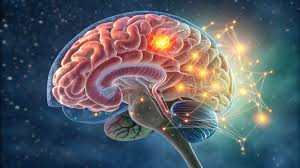Your brain can still make new neurons as an adult. But how does the rare birth of these new neurons contribute to cognitive function?
Neurons are the cells that control brain function, and you are born with the majority of the neurons you will have in your lifetime. While most brain development occurs during early life, specific areas of the brain continue to generate new neurons in adulthood, although at a much lower rate. Whether this process of neurogenesis actually occurs in adults and what function it serves in the brain is still a matter of debate among scientists.
Previous research has shown that people with epilepsy or Alzheimer’s disease and other dementias develop fewer neurons as adults than people without these conditions. However, whether the absence of new neurons contributes to the cognitive challenges faced by patients with these neurological disorders is unknown.
We are part of a team of stem cell researchers, neuroscientists, neurologists, neurosurgeons, and neuropsychologists. Our recently published research shows that new neurons formed in the adult brain are linked to how well you learn by listening to other people talk.
New neurons and learning
Researchers know that new neurons contribute to memory and learning in mice. But in humans, the technical challenges of identifying and analyzing new neurons in the adult brain, combined with their rarity, had led scientists to doubt their importance to brain function.
To uncover the connection between neurogenesis and cognitive function in adults, we studied patients with drug-resistant epilepsy. These patients underwent cognitive assessments before donating brain tissue during surgical procedures to treat their seizures. To see how many new neurons in a patient were linked to specific cognitive functions, we looked under the microscope for markers of neurogenesis.
We found that new neurons in the adult brain are linked to reduced cognitive decline – particularly in verbal learning, or learning by listening to others.
This was very surprising to us. In mice, new neurons are known for their role in helping them learn and navigate new places through visual exploration. However, we did not see the same connection between new neurons and spatial learning in people.
Improving cognition
Talking to others and remembering those conversations is an integral part of day-to-day life for many people. However, this important cognitive function declines with age, and its effects are more severe with neurological disorders. As the aging population grows, the burden of cognitive decline on health care systems around the world will increase.
Our research suggests that the connection between newborn neurons and verbal learning could be foundational to developing treatments to restore cognition in people. Increasing new neuron generation could be a potential strategy to improve brain health and restore cognition in older age and in people with epilepsy or dementia. But for now, these ideas are only goals and a far cry from any future treatments.
Importantly, our finding that new neurons function differently in mice and humans emphasizes the critical need to study biological functions such as neurogenesis in people whenever possible. This will ensure that research conducted in animal models such as mice is relevant to people and can be translated to the clinic.
The main aim of existing medications for epilepsy is to reduce seizures, with limited attention paid to addressing the cognitive decline patients experience. To enhance cognitive outcomes for patients, we initiated a clinical trial focused on promoting new neuron production and cognition in patients with epilepsy through aerobic exercise. We are currently in early Phase 1 of the clinical trial, which seeks to establish the safety of the study. So far, two patients have successfully and safely completed the study. We plan to enroll eight more patients to practice exercise and complete this phase.
By bringing together basic science in the laboratory and clinical research in people, a better understanding of brain regeneration could help support brain health throughout the lifespan.
